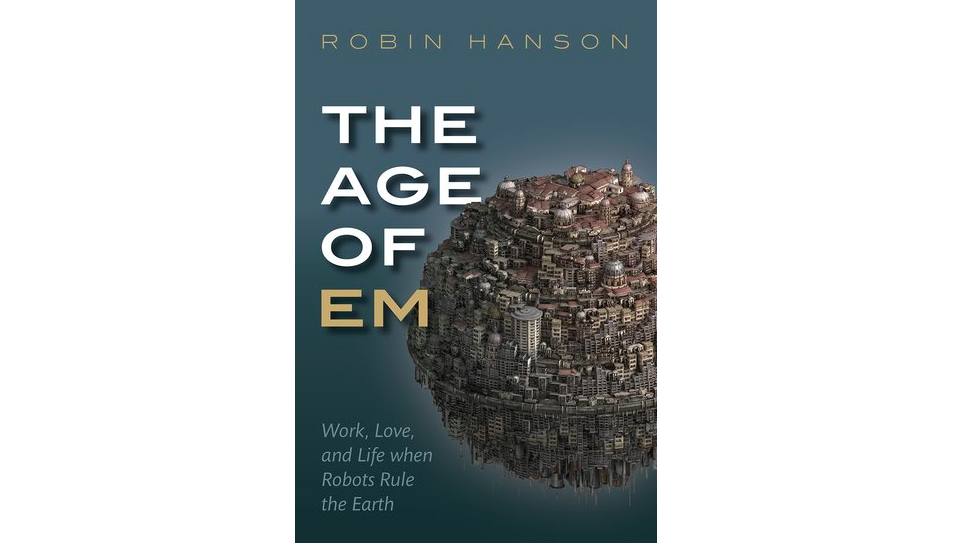Book Review of The Age of Em: Work, Love, and Life When Robots Rule the Earth, by Robin Hanson, Oxford University Press, 2016.
A new book by Robin Hanson, The Age of Em: Work, Love, and Life When Robots Rule the Earth, is reviewed. The Age of Emdescribes a future scenario in which human minds are uploaded into computers, becoming emulations or “ems”. In the scenario, ems take over the global economy by running on fast computers and copying themselves to multitask. The book’s core methodology is the application of current social science to this future scenario, a welcome change from the usual perspectives from physical science, computer science, and philosophy. However, in giving a wide tour of the em world, the book sometimes gets bogged down in details. Furthermore, while the book claims that the em takeover scenario would be a good thing for the world and thus should be pursued, its argument is unpersuasive. That said, the book offers by far the most detailed description of the em world available, and its scenario offers a rich baseline for future study of this important topic.
Academic citation:
Seth D. Baum, 2017. The social science of computerized brains – Book review: The Age of Em: Work, Love, and Life When Robots Rule the Earth. Futures, vol. 90 (June), pages 61-63, DOI 10.1016/j.futures.2017.03.005.
Download Preprint PDF • View in Futures
Image credit: Oxford University Press
This blog post was published on 28 July 2020 as part of a website overhaul and backdated to reflect the time of the publication of the work referenced here.










